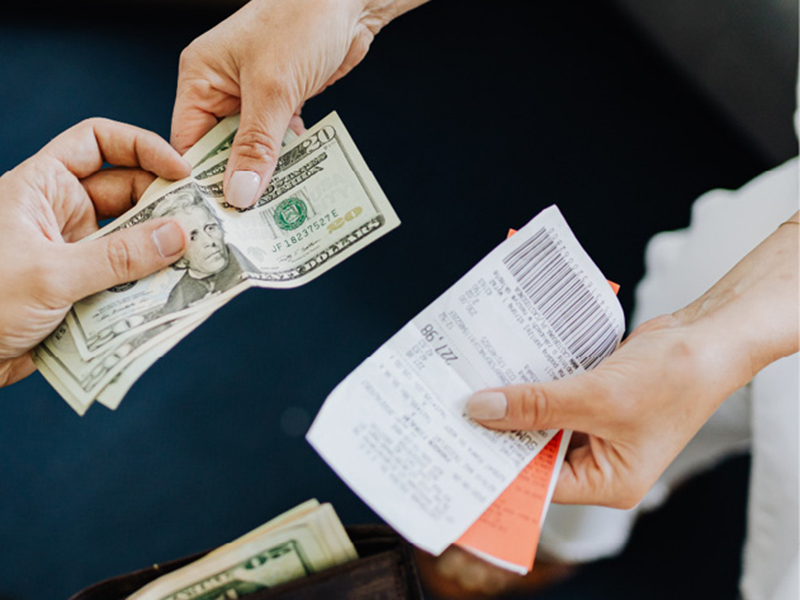
Wait — receipt paper is toxic? The answer is yes, most receipt paper handed to you at grocery stores, gas stations, restaurants, and other retailers contains toxic chemicals called bisphenols (or phenols) like Bisphenol A (BPA).
Long-term exposure can cause blood and liver toxicity in humans. Putting receipts in the recycling bin is one of the largest sources of BPA release to the environment because BPA receipt paper is not recyclable. BPA is a contaminant of emerging concern for orcas in Puget Sound, which is one main reason why we’re working to reduce the use of this chemical.
We worked closely with Joint Base Lewis-McChord (JBLM) to reduce its use of toxic receipt paper. So far, the base has replaced 1,150 BPA-containing rolls with phenol-free alternatives (we’re aiming to replace 1,900 rolls), and reduced phenol use on base by 460 pounds per year.
Our project focused on finding a phenol-free receipt paper that would still meet performance requirements. The replacement paper needed to meet certain standards within these categories:
- Paper color
- Printing speed
- Paper jams
- Text readability
- Texture (i.e., feel of the paper)
We helped JBLM find suppliers and set up a demonstration at retail locations on base so they could evaluate product performance. Overall, the alternatives encouraged JBLM officials. One of the biggest benefits of the new BPA-free receipt paper is that it works with current equipment — retailers only have to change the type of receipt paper they order.
JBLM is considering a full-scale rollout of BPA-free receipts by 2024. This aligns with one of their major goals to “sustain and protect the environment as a fully integrated community partner in the lower Puget Sound.”
Ecology staff supports Washington businesses year-round with waste reduction projects like this one. To see more examples of the types of work we do, check out our 2020 Annual Report. To find out more about the JBLM receipt paper project, contact Hugh O'Neill at hugh.oneill@ecy.wa.gov.

